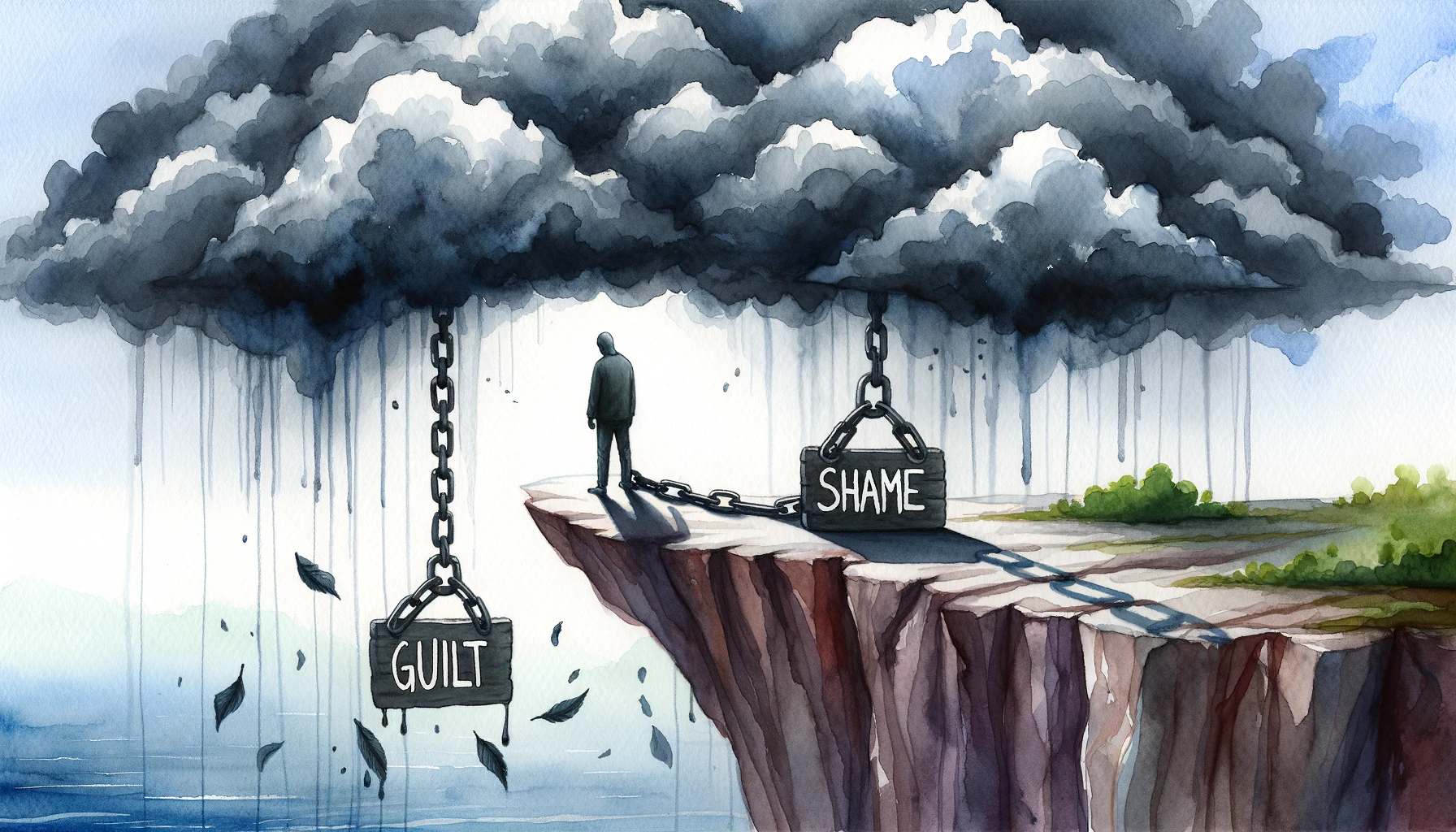Guilt and shame can weigh heavily on our hearts, holding us back from living the abundant life that God intends for us. By exploring the transformative message of grace in the Bible, we can learn to let go of these negative emotions and accept the forgiveness and love that God offers. This article will guide you through a deeper understanding of God’s grace, and how it can help us release guilt and shame. By embracing His grace, we can move forward in our spiritual journey, experiencing renewed hope and a strengthened relationship with Christ.
Understanding God’s Grace and Its Power to Heal
God’s grace is at the very core of the Christian faith. It is the unmerited favor, love, and mercy that God extends to us, despite our unworthiness and sinfulness (Ephesians 2:8-9). This divine gift is not something we can earn or deserve, but it is freely given by God through the sacrifice of Jesus Christ on the cross. By accepting this gift, we can be forgiven, healed, and transformed, allowing us to break free from the bonds of guilt and shame.
One of the most significant aspects of God’s grace is its power to heal our brokenness. When we come to Christ in faith, we are given a new life, washed clean from our past sins (2 Corinthians 5:17). This transformative power of grace not only frees us from the consequences of sin but also allows us to experience true healing and restoration in our lives (Psalm 103:12). The Holy Spirit works within us to renew our hearts and minds, enabling us to live as new creations, no longer bound by guilt and shame.
The grace of God is also essential in understanding our identity as Christians. Through Christ’s sacrifice, we are adopted as children of God (Romans 8:14-16), and this new identity allows us to experience the fullness of God’s love and acceptance. As we grow in our relationship with Christ and learn to live in the light of His grace, we find that our feelings of guilt and shame begin to fade, replaced by a deep sense of belonging and worthiness in the eyes of our Heavenly Father.
It is crucial to recognize that embracing God’s grace is an ongoing process in the Christian life. We may still stumble and fall, and there will be times when we feel the weight of guilt and shame (1 John 1:8-9). However, by continually turning to Christ and relying on His grace, we can find forgiveness and healing for our sins and the strength to keep moving forward in our walk with Him (Philippians 4:13).
The power of God’s grace to heal us from guilt and shame is a central message of the Christian faith. By accepting this gift, we are freed from the bonds of our past sins and given the opportunity to experience true healing, restoration, and a renewed sense of identity as children of God. As we learn to live in the light of His grace, we will find the strength and hope needed to overcome guilt and shame and embrace the fullness of life in Christ.
Biblical Stories of Redemption: Letting Go of Guilt and Shame
The Bible is filled with stories of individuals who experienced redemption and forgiveness through the grace of God, despite their guilt and shame. These stories serve as powerful examples of how God’s grace can transform lives and help us let go of the burdens of guilt and shame that we may carry.
The story of King David is one such example. David committed adultery with Bathsheba and later arranged for her husband’s death to cover up his sin (2 Samuel 11). When confronted by the prophet Nathan, David recognized his sin and sought forgiveness from God (2 Samuel 12:13). Despite the severity of his actions, David was forgiven, and his heartfelt repentance became an example of the power of God’s grace to restore even the most broken of relationships (Psalm 51).
Another compelling story is that of the apostle Peter, who denied Jesus three times on the night of His arrest (Matthew 26:69-75). Peter was deeply grieved by his betrayal, but after Jesus’ resurrection, He personally restored Peter and commissioned him to lead the early church (John 21:15-19). Peter’s story demonstrates that even when we fail, God’s grace can redeem us and give us a new purpose in His kingdom.
The parable of the prodigal son is another powerful illustration of God’s grace (Luke 15:11-32). In this story, a young man squanders his inheritance and ends up destitute. When he finally returns to his father, expecting nothing more than to be treated as a servant, he is instead welcomed with open arms and unconditional love. This parable teaches us that no matter how far we have strayed or how unworthy we may feel, God’s grace is always waiting for us, ready to embrace us and restore us to our rightful place as His beloved children.
These biblical stories serve as powerful reminders of the incredible depth and reach of God’s grace. They show us that no matter what we have done or how undeserving we may feel, God’s love and forgiveness are always available to us. Through these stories, we can find hope and inspiration to let go of guilt and shame and embrace the healing power of God’s grace in our own lives.
Practical Steps to Embrace Grace and Find Freedom in Christ
Embracing God’s grace and finding freedom from guilt and shame is a crucial aspect of our spiritual journey. Here are some practical steps to help you experience the transformative power of God’s grace in your daily life:
- Acknowledge and confess your sins: Openly admit your wrongdoing and ask for God’s forgiveness (1 John 1:9). Confession allows God’s grace to enter our lives and bring healing.
- Accept God’s forgiveness and let go of self-condemnation: Believe that Christ’s sacrifice on the cross has paid for your sins and release feelings of guilt and shame (Romans 8:1). Remember, God’s love is unconditional, and His forgiveness is complete.
- Meditate on God’s promises and truths: Focus on the assurance of God’s love, forgiveness, and acceptance to replace the lies of guilt and shame with the truth of your identity in Christ (Philippians 4:8). Regularly read and reflect on the Bible to grow in your understanding of God’s grace.
- Surround yourself with a supportive community: Seek fellowship with fellow believers who can encourage, uplift, and hold you accountable in your journey (Hebrews 10:24-25). A strong community of faith can help you maintain your focus on the freedom and healing that comes from embracing God’s grace.
By following these practical steps, you can experience lasting freedom from guilt and shame while growing in your relationship with Christ. Embracing God’s grace through confession, acceptance of forgiveness, meditation on His promises, and support from a community of believers will lead you towards a life free from the burden of guilt and shame, allowing you to fully experience the healing power of God’s grace.
Finding Hope and Healing in God’s Grace
As we reach the end of this journey through the topic of embracing God’s grace and letting go of guilt and shame, let us carry the hope and healing found in Christ’s love. Reflect on the following personal questions to further deepen your understanding and connection to God’s grace:
- In which areas of your life do you need to experience God’s grace and forgiveness?
- How can you better embrace your identity as a child of God and let go of guilt and shame?
- What steps will you take to seek support from a community of believers in your spiritual journey?
May the knowledge of God’s grace and the examples of redemption found in the Bible inspire you to let go of guilt and shame, embracing the freedom and joy that come from a life rooted in the love of Christ. Walk confidently in the knowledge that you are forgiven, loved, and valued by our Heavenly Father, and let His grace transform your heart and mind as you continue on your spiritual journey.














